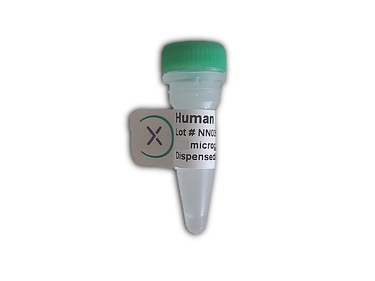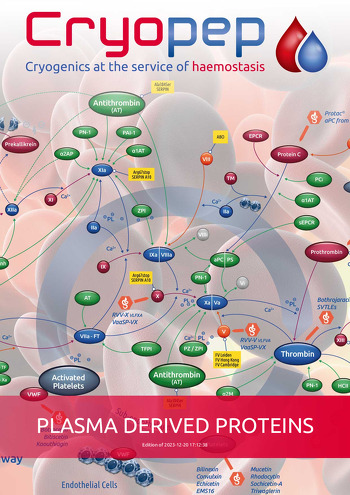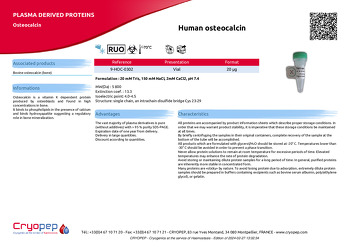Osteocalcin is a vitamin K dependent protein produced by osteoblasts and found in high concentrations in bone.
It binds to phospholipids in the presence of calcium and binds hydroxyapatite suggesting a regulatory role in bone mineralization.
All proteins are accompanied by product information sheets which describe proper storage conditions. In order that we may warrant product stability, it is imperative that these storage conditions be maintained at all times.
By briefly centrifuging the samples in their original containers, complete recovery of the sample at the bottom of the tube will be accomplished.
All products which are formulated with glycerol/H₂O should be stored at -20° C. Temperatures lower than -30° C should be avoided in order to prevent a phase transition.
Never allow protein solutions to remain at room temperature for excessive periods of time. Elevated temperatures may enhance the rate of protein degradation.
Avoid storing or maintaining dilute protein samples for a long period of time. In general, purified proteins are inherently more stable in concentrated form.
Many proteins are «sticky» by nature. To avoid losing protein due to adsorption, extremely dilute protein samples should be prepared in buffers containing excipients such as bovine serum albumin, poly(ethylene glycol), or gelatin.
The vast majority of plasma derivatives is pure (without additives) with > 95 % purity SDS-PAGE.
Expiration date of one year from delivery.
Delivery in large quantities.
Discount according to quantities.






















